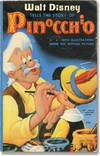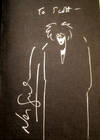

Chancellorsville and Gettysburg; Campaigns of the Civil War.--VI
by Doubleday, Abner
- Used
- Very Good
- Hardcover
- Condition
- Very Good
- Seller
-
Silver Spring, Maryland, United States
Payment Methods Accepted
About This Item
Harrisburg, PA: The Archive Society, 1992. Facsimile Reprint Edition. Hardcover. Very good. xi, [5], 243, [3] pages. Maps. Occasional footnotes. Decorative endpapers. Gilt-edged. Several appendices. Index. Abner Doubleday (June 26, 1819 - January 26, 1893) was a career Army officer and Union general in the American Civil War. He fired the first shot in defense of Fort Sumter. The Battle of Gettysburg was his finest hour. At Chancellorsville in May 1863, the division was kept in reserve . At the start of the Battle of Gettysburg, July 1, 1863, Doubleday's division was the second infantry division on the field to reinforce the cavalry division of Brigadier General John Buford. When his corps commander, Major General John R. Reynolds, was killed, Doubleday found himself in command of the corps at 10:50 am. His men fought well but as overwhelming Confederate forces massed against them, their line broke and they retreated to Cemetery Hill south of town. It was Doubleday's finest performance during the war, five hours leading 9,500 men against ten Confederate brigades that numbered more than 16,000. Seven of those brigades sustained casualties that ranged from 35 to 50 percent. On July 2, 1863, Army of the Potomac commander Maj. Gen. George G. Meade replaced Doubleday with Major General John Newton. Meade had a long history of disdain for Doubleday, dating back to South Mountain. Doubleday held a lasting grudge against Meade, but he returned to division command and fought well for the remainder of the battle. He was wounded in the neck and received a brevet promotion. The Battle of Chancellorsville was a major battle of the American Civil War. It was fought from April 30 to May 6, 1863. The campaign pitted Union Army Maj. Gen. Joseph Hooker's Army of the Potomac against an army less than half its size, General Robert E. Lee's Confederate Army of Northern Virginia. Chancellorsville is known as Lee's "perfect battle" because his risky decision to divide his army in the presence of a much larger enemy force resulted in a significant Confederate victory. The victory, a product of Lee's audacity and Hooker's timid decision making, was tempered by heavy casualties and the mortal wounding of Lt. Gen. Thomas J. "Stonewall" Jackson by friendly fire, a loss that Lee likened to losing his right arm.
On May 1, Hooker advanced from Chancellorsville toward Lee, but the Confederate general split his army in the face of superior numbers, leaving a small force at Fredericksburg to deter Maj. Gen. John Sedwick from advancing, while he attacked Hooker's advance with about four-fifths of his army. Despite the objections of his subordinates, Hooker withdrew his men to the defensive lines around Chancellorsville, ceding the initiative to Lee. On May 2, Lee divided his army again, sending Stonewall Jackson's entire corps on a flanking march that routed the Union XI Corps. The fiercest fighting of the battle-and the second bloodiest day of the Civil War-occurred on May 3 as Lee launched multiple attacks against the Union position at Chancellorsville, resulting in heavy losses on both sides. Hooker withdrew the remainder of his army across U.S. Ford the night of May 5-6. The campaign ended on May 7 when Stoneman's cavalry reached Union lines east of Richmond.
The Battle of Gettysburg was fought July 1-3, 1863, by Union and Confederate forces during the American Civil War. The battle involved the largest number of casualties of the entire war and is often described as the war's turning point. Union Maj. Gen. George Meade' Army of the Potomac defeated attacks by Confederate Gen. Robert E. Lee's Army of Northern Virginia, ending Lee's attempt to invade the North. After his success at Chandellorsville in May 1863, Lee led his army to begin his second invasion of the North-the Gettysburg Campaign. Lee intended to shift the focus of the summer campaign from war-ravaged northern Virginia and hoped to influence Northern politicians to give up their prosecution of the war. Elements of the two armies initially collided at Gettysburg on July 1, 1863, as Lee urgently concentrated his forces there, his objective being to engage the Union army and destroy it. Low ridges to the northwest of town were defended initially by a Union cavalry division under Brig. Gen. John Buford, and soon reinforced with two corps of Union infantry. However, two large Confederate corps assaulted them from the northwest and north, collapsing the hastily developed Union lines, sending the defenders retreating. On the second day of battle, most of both armies had assembled. The Union line was laid out in a defensive formation resembling a fishhook. In the late afternoon of July 2, Lee launched a heavy assault on the Union left flank, and fierce fighting raged at Little Round Top, Devil's Den, and the Peach Orchard. All across the battlefield, despite significant losses, the Union defenders held their lines. On the third day of battle, fighting resumed on Culp's Hill, and cavalry battles raged to the east and south, but the main event was a dramatic infantry assault by 12,500 Confederates against the center of the Union line on Cemetery Ridge, known as Pickett's Charge. The charge was repulsed at great loss to the Confederate army. Lee led his army on a torturous retreat back to Virginia. Between 46,000 and 51,000 soldiers from both armies were casualties in the three-day battle, the most costly in US history.
Reviews
(Log in or Create an Account first!)
Details
- Bookseller
- Ground Zero Books
(US)
- Bookseller's Inventory #
- 72676
- Title
- Chancellorsville and Gettysburg; Campaigns of the Civil War.--VI
- Author
- Doubleday, Abner
- Format/Binding
- Hardcover
- Book Condition
- Used - Very Good
- Quantity Available
- 1
- Edition
- Facsimile Reprint Edition
- Publisher
- The Archive Society
- Place of Publication
- Harrisburg, PA
- Date Published
- 1992
- Keywords
- Chancellorsville, Gettysburg, John Buford, Jubal Early, Benjamin Ewell, Winfield Scott Hancock, A. P. Hill, Joseph Hooker, Oliver O. Howard, James Longstreet, Stonewall Jackson, George Gordon Meade, Alfred Pleasonton, Pickett's Charge, Jeb Stuart, Da
Terms of Sale
Ground Zero Books
Books are offered subject to prior sale. Satisfaction guaranteed. If you notify us within 7 days that you are not satisfied with your purchase, we will refund your purchase price when you return the item in the condition in which it was sold.
About the Seller
Ground Zero Books
Biblio member since 2005
Silver Spring, Maryland
About Ground Zero Books
Founded and operated by trained historians, Ground Zero Books, Ltd., has for over 30 years served scholars, collectors, universities, and all who are interested in military and political history.
Much of our diverse stock is not yet listed on line. If you can't locate the book or other item that you want, please contact us. We may well have it in stock. We welcome your want lists, and encourage you to send them to us.
Much of our diverse stock is not yet listed on line. If you can't locate the book or other item that you want, please contact us. We may well have it in stock. We welcome your want lists, and encourage you to send them to us.
Glossary
Some terminology that may be used in this description includes:
- Reprint
- Any printing of a book which follows the original edition. By definition, a reprint is not a first edition.
- G
- Good describes the average used and worn book that has all pages or leaves present. Any defects must be noted. (as defined by AB...
- Facsimile
- An exact copy of an original work. In books, it refers to a copy or reproduction, as accurate as possible, of an original...
- Remainder
- Book(s) which are sold at a very deep discount to alleviate publisher overstock. Often, though not always, they have a remainder...

